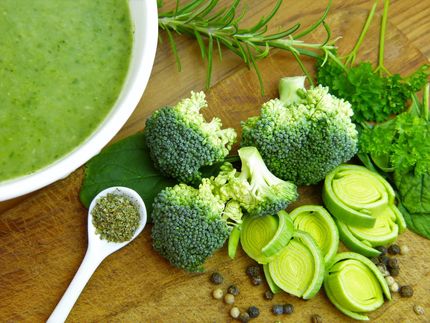Fish alternatives impress in the Nutri-Score in Germany
Which nutritional values can still be improved?
Advertisement
A recent nutritional study by ProVeg International shows that plant-based fish alternatives in Germany often have an above-average Nutri-Score, which makes them suitable for a balanced diet. However, compared to other countries, the products often contain less protein and are less often enriched with iodine and other micronutrients. The nutrition organization is calling on manufacturers to improve micronutrient content. It would like to see clear standards for optimal nutrient profiles and labeling from politicians.
Plant-based fish alternatives offer consumers a number of advantages: they are practical because they can be used in the kitchen like conventional fish. At the same time, they take pressure off the overfished ecosystems of our oceans and thus support a sustainable diet. The ProVeg study "Out of the net, into the future: The coming rise of plant-based fish alternatives and a look at their nutritional profile" has now also examined the nutritional values of plant-based fish alternatives based on 100 products from eleven countries, including 16 products from Germany. The study considers alternatives to fish sticks, burgers and fillets as well as tuna and smoked salmon.
Top for Nutri-Score, fat and sugar
In Germany, plant-based fish alternatives score highly when it comes to the transparent labeling of nutritional values. In Germany, a disproportionately high number of the products surveyed state their Nutri-Score. Around 7 out of 10 products from Germany are rated A, B or C and are therefore suitable for a balanced diet in moderation or on a regular basis. This proportion is around twice as high as the international comparison.
Plant-based fish alternatives in Germany have an average low saturated fat content of 1.1 grams per 100 grams. This qualifies them as "low-fat" according to the criteria of the European Union (EU) and places Germany among the countries with the lowest average values.
The products are also generally low in sugar, with an average of 1.6 grams of sugar per 100 grams. This content is well below the EU threshold for the "low sugar" label and is comparable with the values in most of the other countries surveyed.
Midfield for fiber and omega-3
Fish alternatives in Germany also contain an average of 3.8 grams of fiber per 100 grams. Unlike conventional fish, they are therefore considered "sources of fiber" according to the EU. However, only around one in three fish alternatives in Germany qualify as a "source of fiber", whereas in Belgium and the UK the figure is over 70 percent.
Products that state their omega-3 content contain an average of 0.75 grams of the healthy fatty acids per 100 grams. This value is in the range of the overall average of all products declaring omega-3. The primary omega-3 fatty acid was alpha-linolenic acid (ALA). The study recommends that manufacturers supplement eicosapentaenoic acid (EPA) and docosahexaenoic acid (DHA), for example from algae oil, to better reflect the nutritional values of animal fish.
Bringing up the rear in protein, micronutrients and salt
At around 8.6 grams per 100 grams, plant-based fish alternatives in Germany are at the lower end of the protein spectrum. Only 65 percent of products are considered "protein sources" according to the EU threshold. This proportion is far lower than in the Czech Republic and Spain, where all the products examined meet the EU criteria, and lower than in Italy, the Netherlands, Poland, the USA and Portugal.
Less than a quarter of the products are enriched with vitamin B12 or iron. Fish alternatives in Germany are therefore at the bottom of the country comparison. Overall, the study team found only one iodine-enriched product - from Italy. Animal fish is an important source of iodine and iodine is a critical nutrient in Germany, regardless of the type of diet.
The average salt content in fish alternatives in Germany was 1.5 grams per 100 grams. This value is above the international average of 1.3 grams per 100 grams and is only exceeded in Poland. However, the salt content varies greatly depending on the product type and brand.
Recommendations for manufacturers and politicians
To ensure that plant-based fish alternatives are an appropriate alternative to conventional fish, ProVeg recommends targeted product development. Manufacturers should pay attention to the enrichment with micronutrients and the use of omega-3 sources such as algae oil. Protein quality can be improved through a combination of different plant sources and adapted processing. Policymakers should also set clear standards for optimal nutrient profiles and fortification with vitamin B12, iron and iodine. Manufacturers could use these as a guide when developing high-quality products.
Note: This article has been translated using a computer system without human intervention. LUMITOS offers these automatic translations to present a wider range of current news. Since this article has been translated with automatic translation, it is possible that it contains errors in vocabulary, syntax or grammar. The original article in German can be found here.































































